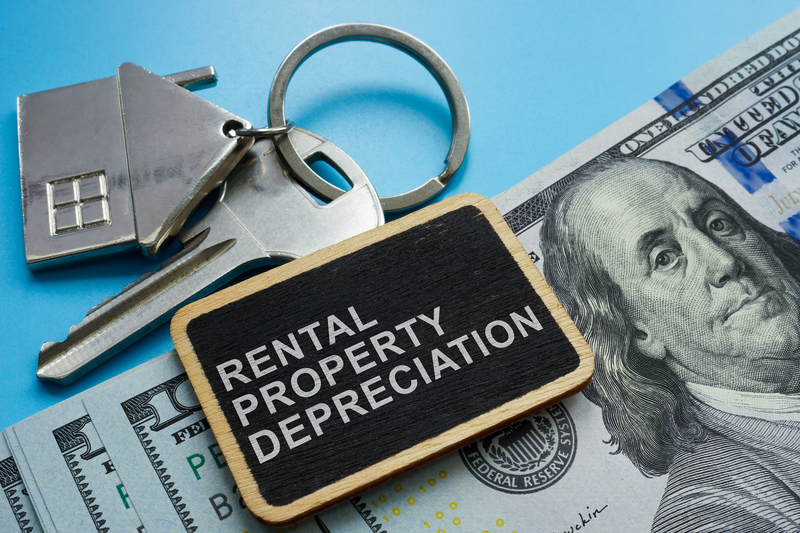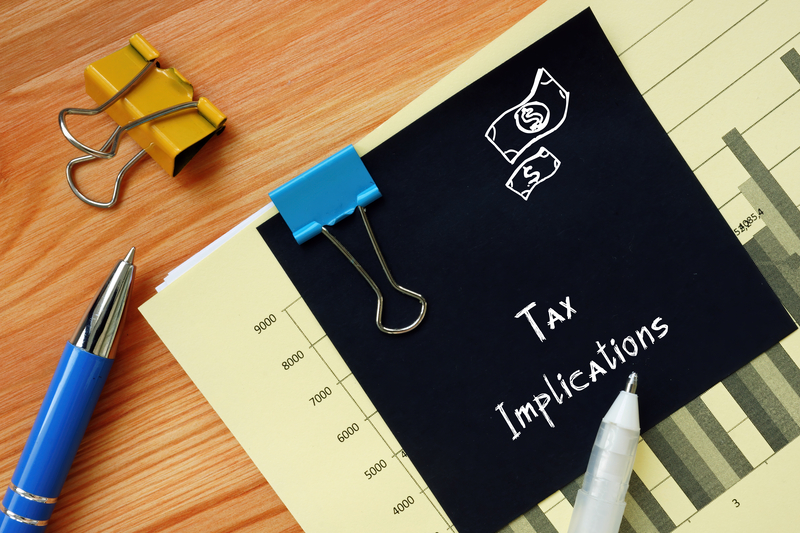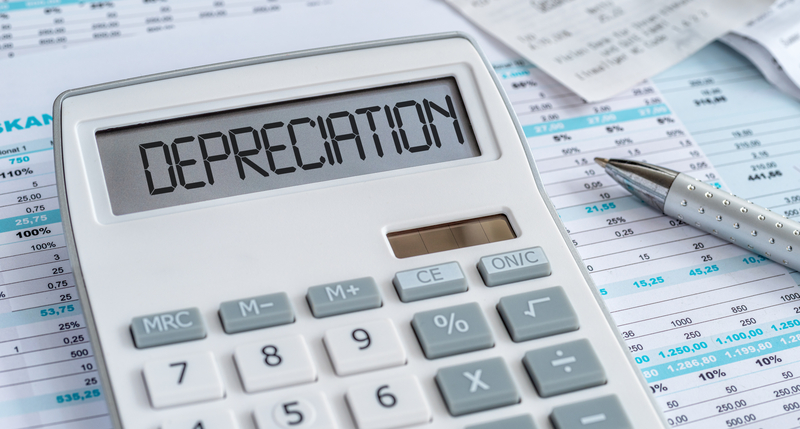Owning a rental property is more than just an avenue for passive income; it's a commitment to upkeep and management. As with all tangible assets, rental properties are susceptible to wear and tear. But there's a silver lining to this inevitable decline: the tax benefits of claiming rental property depreciation.
The Concept of Depreciation
Depreciation: Beyond Surface Value Depreciation doesn't measure the market value of your property; instead, it helps allocate the cost of the property over its expected useful life. This allocation lets property owners deduct the buying and improvement expenses from their taxes. Since rental income is taxable, these deductions can offer substantial relief.
Navigating the Criteria for Rental Depreciation

Determining Your Property's Eligibility Before diving into the realm of depreciation deductions, ensure that your property aligns with the IRS’s specific criteria:
- Ownership: You must legally own the property.
- Income Production: The property should generate income.
- Determinable Useful Life: The property should eventually wear out or become obsolete.
- Extended Useful Life: Its useful life should surpass one year.
Determining the Useful Life
Guidance from the IRS The IRS offers two systems to guide your depreciation journey: the General Depreciation System (GDS) and the Alternative Depreciation System (ADS).
- General Depreciation System (GDS):
- Residential property's useful life is pegged at 27.5 years.
- Offers a relatively shorter recovery period.
- Most landlords prefer this due to its straightforward approach.
- Alternative Depreciation System (ADS):
- Residential properties placed in service post-January 1, 2018, have a useful life of 30 years. Those before this date have 40 years.
- Features longer recovery periods.
- Allows for higher yearly depreciation claims.
Remember: once a system is chosen, consistency is key. Stick with it for the property's entire depreciation duration.
Timing Matters: Commencing Depreciation

Kickstarting the Depreciation Process Depreciation begins when the property is ready for rental, not necessarily when tenants occupy it. If a property is ready in November but rented in December, depreciation starts in November.
Decoding the Depreciation Calculation
Determining the Base and Schedule Start by ascertaining the property’s cost basis. Then, divide it by its useful life (based on either GDS or ADS). The result gives the annual depreciation deduction. Always consider consulting with financial experts if the calculations seem daunting.
The Lifespan of Depreciation
When Does It End? Depreciation isn't eternal. It concludes either when the total cost has been deducted or when the property stops being an income-generating asset.
Reporting Depreciation: The IRS Aspect
Filing with the IRS Typically, Schedule E of the standard 1040 tax form is used to report depreciation. However, unique situations might require alternative forms. When in doubt, seek a tax expert’s counsel.
Selling Your Rental Property: The Tax Implications

Navigating Depreciation Recapture Tax Selling your rental property above its depreciated value might entail a 25% tax on the excess amount, known as the depreciation recapture tax.
The Caps on Rental Property Depreciation
Setting Boundaries Owners need to be aware of income limits. With a gross income threshold of $100,000, they can claim deductions up to $25,000.
The Real Impact of Depreciation
A Direct Impact on Tax Liability Depreciation can significantly decrease your annual tax burden. As it's one of the expenses on Schedule E, the depreciation amount directly influences your tax liability.
Land and Depreciation: A Clarification
Depreciating the Tangible, Not the Eternal While buildings on rental properties are subject to depreciation, the land they stand on isn’t. The IRS's rationale is simple: land can't be "worn out."
Neglecting Depreciation: The Consequences
Correcting Oversights Forgetting to claim depreciation can be rectified by completing a Form 1040x and other pertinent forms post your latest tax return.
The Final Word
Harnessing the Benefits Depreciation is an indispensable tool for rental property owners, offering financial relief over years. As tax landscapes evolve, always collaborate with adept tax professionals to navigate rental property tax intricacies.
If you’d like to talk more about property management, or you need help with Everest Property Management, please contact us at Everest Realty.




 As a top producing Realtor and Property Manager; Terry specializes in sales, extensive construction homes, rentals, REO’s, short sales, and all aspects of Real Estate. After graduating the University of Michigan with a master in MBA, Terry continued his endeavor and now has over 15+ years of experience in the Real Estate world. If there is anything that has to do with Real Estate and sales, you can always be sure of Terry to provide important, specialized knowledge.
As a top producing Realtor and Property Manager; Terry specializes in sales, extensive construction homes, rentals, REO’s, short sales, and all aspects of Real Estate. After graduating the University of Michigan with a master in MBA, Terry continued his endeavor and now has over 15+ years of experience in the Real Estate world. If there is anything that has to do with Real Estate and sales, you can always be sure of Terry to provide important, specialized knowledge.




